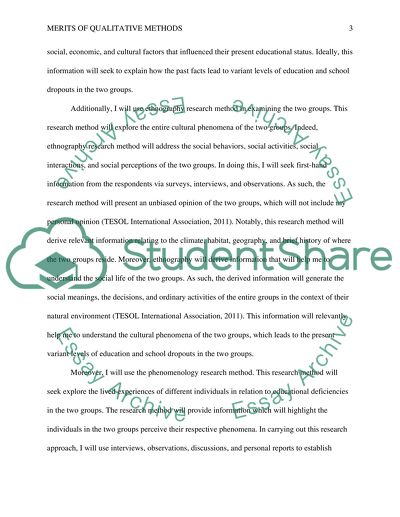Cite this document
(“Merits of Qualitative Methods Essay Example | Topics and Well Written Essays - 1000 words”, n.d.)
Merits of Qualitative Methods Essay Example | Topics and Well Written Essays - 1000 words. Retrieved from https://studentshare.org/psychology/1487637-91190
Merits of Qualitative Methods Essay Example | Topics and Well Written Essays - 1000 words. Retrieved from https://studentshare.org/psychology/1487637-91190
(Merits of Qualitative Methods Essay Example | Topics and Well Written Essays - 1000 Words)
Merits of Qualitative Methods Essay Example | Topics and Well Written Essays - 1000 Words. https://studentshare.org/psychology/1487637-91190.
Merits of Qualitative Methods Essay Example | Topics and Well Written Essays - 1000 Words. https://studentshare.org/psychology/1487637-91190.
“Merits of Qualitative Methods Essay Example | Topics and Well Written Essays - 1000 Words”, n.d. https://studentshare.org/psychology/1487637-91190.


